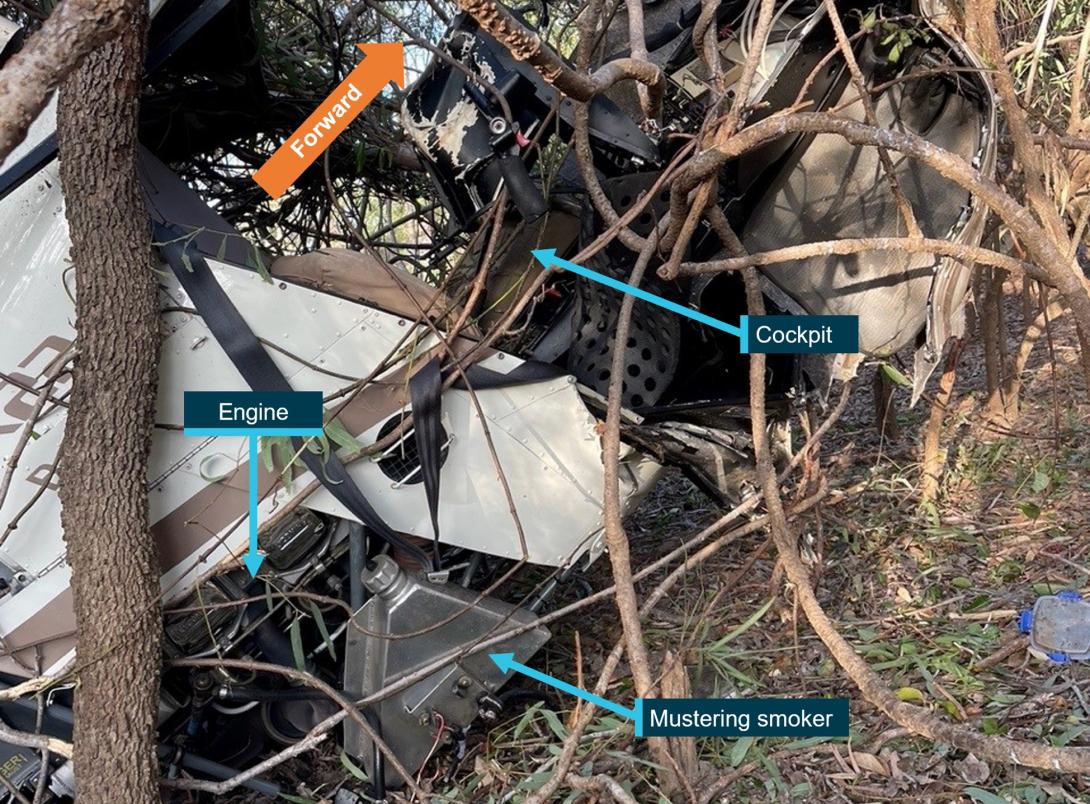
The ATSB is urging operators, maintainers and pilots of Robinson R22 and R44 helicopters to submit Lycoming Cylinder Durability Investigation Group defect report forms to help improve the understanding of ongoing engine cylinder failures.
The ATSB safety advisory notice to industry follows its investigation of a 6 August 2022 accident involving an R22 about 85 NM north-east of Karumba, Queensland, which had an engine malfunction while en-route to mustering activities.
The pilot commenced an autorotation and flared the helicopter just above trees in a heavily wooded area, the ATSB investigation final report details.
The helicopter collided with trees and was destroyed, but the pilot was able to exit the helicopter uninjured.
A subsequent examination of the R22’s Lycoming O-360 engine identified carbon had built up in a valve guide, preventing the valve from closing fully, reducing power, and resulting in rough running.
“Since 2016, considerable investigation work has been carried out by Robinson, Lycoming, industry groups, and CASA to identify the factors contributing to cylinder failures affecting R22 and R44 helicopters primarily used in mustering operations across northern Australia,” said ATSB Director Transport Safety Dr Stuart Godley.
The ATSB’s report noted the accident helicopter had required 15-cylinder changes in the two years prior to the occurrence, due to having low compression when tested.
“Although other northern Australian operators would have also experienced a disproportionate number of cylinder failures, there has been insufficient data provided to the working group relating to the extent and nature of these failures to identify strategies for prevention.”
Notably, only 10% of operators who were sent the Lycoming Cylinder Durability Investigation Group request in 2019 responded to it – limiting the group’s ability to identify a solution.
“As such, the ATSB is releasing a safety advisory notice, strongly encouraging maintainers of R22 and R44 helicopters with Lycoming O-360 and O-540 series engines to complete a Lycoming Cylinder Durability Investigation Group defect report form any time engine cylinder issues are identified.”
The investigation identified that the accident helicopter’s engine power loss was sudden and required an immediate application of the autorotation procedure.
“This accident highlights the importance for pilots to remain cognisant of changes in performance, and to be prepared for the rapid onset of an in-flight emergency, as the pilot demonstrated they were in this case,” Dr Godley said.
“But more data could assist in determining the precise reason for increased cylinder failures and improve safety by reducing the number of engine failures affecting R22 and R44 helicopters primarily used in mustering operations.”
Read the Safety Advisory Notice: R22 and R44 cylinder durability issues
Read the report: Engine malfunction and forced landing involving Robinson R22 Beta II, VH-NKV 85 NM north-east of Karumba Airport, Queensland, on 6 August 2022


